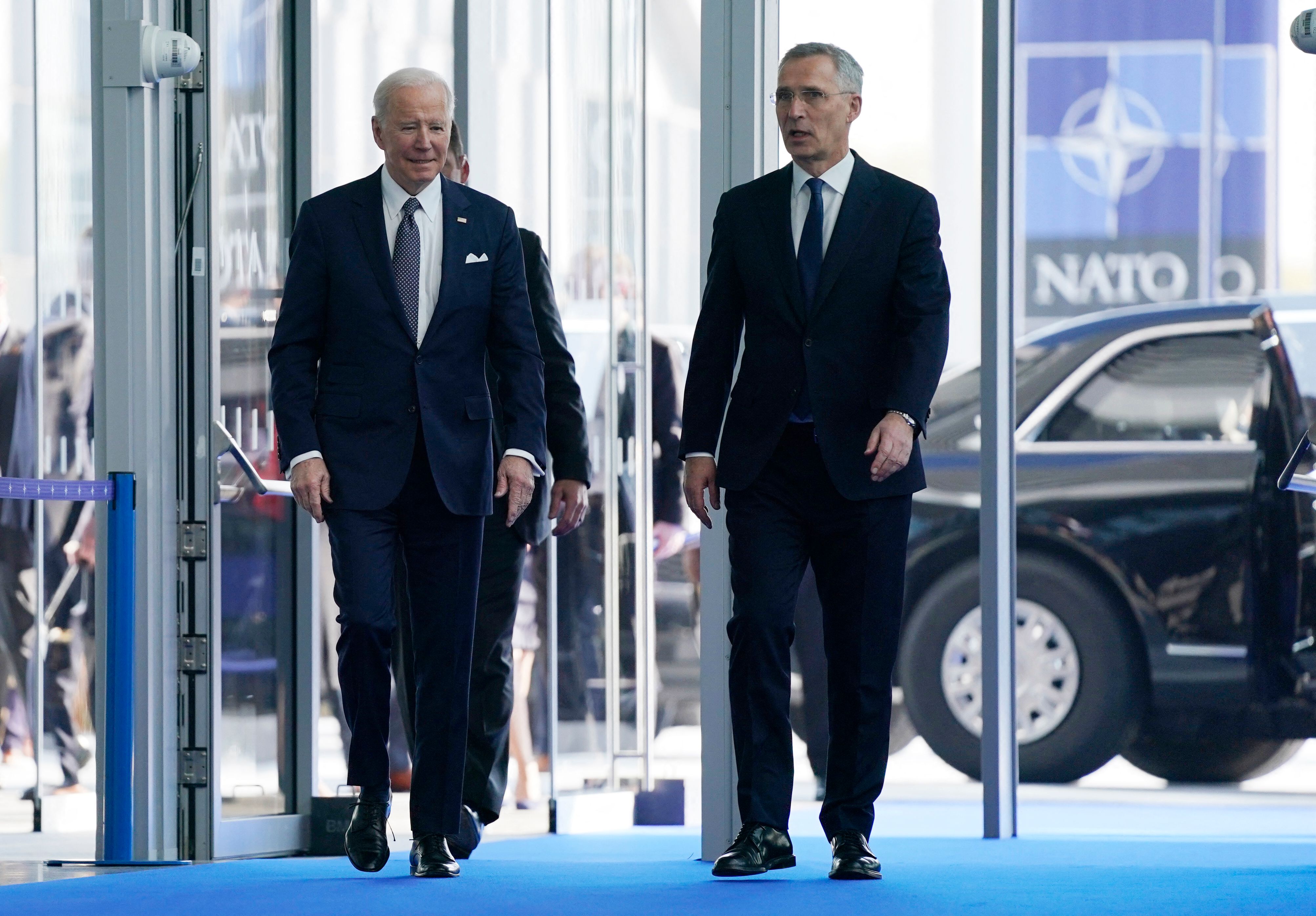Biden’s Commitment to NATO: Biden Nato

Biden nato – President Biden has repeatedly affirmed his commitment to NATO, emphasizing the alliance’s vital role in ensuring transatlantic security. This commitment is rooted in Biden’s long-standing support for NATO, dating back to his time as a Senator and Vice President.
Biden’s Actions and Statements
Biden has taken several concrete steps to demonstrate his support for NATO. In 2021, he attended the NATO summit in Brussels, where he reaffirmed the United States’ commitment to Article 5 of the Washington Treaty, which states that an attack on one member is an attack on all. Biden has also increased US military spending on NATO operations and has worked to strengthen the alliance’s cyber and space capabilities.
Significance for Transatlantic Relations
Biden’s commitment to NATO is significant for transatlantic relations. It sends a clear message that the United States remains committed to the alliance and its shared values of democracy, human rights, and the rule of law. This commitment helps to strengthen the transatlantic bond and provides a foundation for continued cooperation on a range of global challenges.
Biden’s Agenda for NATO Reform

President Biden has proposed a number of reforms for NATO, designed to strengthen the alliance and adapt it to the challenges of the 21st century. These reforms include increasing defense spending, strengthening cyber defenses, and improving intelligence sharing.
Increasing Defense Spending
Biden has called on NATO members to increase their defense spending to 2% of their GDP. This would bring the alliance in line with the target set by NATO in 2014. Currently, only a handful of NATO members meet this target.
Increasing defense spending would allow NATO to invest in new capabilities, such as cyber defenses and air and missile defense. It would also send a signal to potential adversaries that NATO is serious about defending its members.
Strengthening Cyber Defenses
Cyber attacks are a growing threat to NATO members. In 2021, there were over 400 major cyber attacks on NATO members, up from 250 in 2020.
Biden has proposed a number of measures to strengthen NATO’s cyber defenses, including creating a new cyber operations center and developing a new cyber strategy. These measures would help NATO to better detect, deter, and respond to cyber attacks.
Improving Intelligence Sharing, Biden nato
Intelligence sharing is essential for NATO to be able to effectively deter and respond to threats. However, intelligence sharing between NATO members has been hampered by a number of factors, including different national security laws and regulations.
Biden has proposed a number of measures to improve intelligence sharing between NATO members, including creating a new intelligence fusion center and developing new protocols for sharing classified information.
Biden’s recent NATO speech has drawn criticism from many, who accuse him of being a “congenital liar” ( congenital liar ). These accusations stem from Biden’s history of making false statements, both as a politician and a private citizen. Critics point to Biden’s claim that he was arrested in South Africa for trying to meet Nelson Mandela, which has been debunked, as well as his assertion that he graduated in the top half of his law school class, which is also untrue.
Biden’s supporters have defended him against these accusations, arguing that he is a man of integrity who has made honest mistakes. However, the controversy surrounding Biden’s honesty has raised questions about his fitness to lead the United States and NATO.
Biden’s reassurance to NATO allies during his recent visit to Europe stands in stark contrast to the divisive rhetoric that has characterized the trump rally. While Biden emphasized the importance of collective defense and unity within the alliance, the former president’s rallies have been marked by isolationist sentiments and attacks on NATO partners.
This stark difference in approach highlights the fundamental divide between Biden’s commitment to multilateralism and Trump’s unilateralist tendencies.